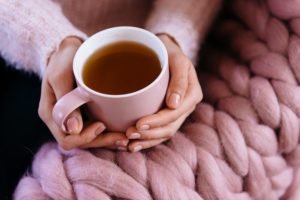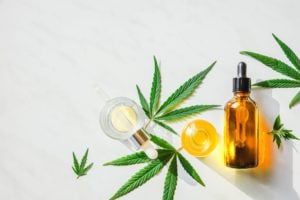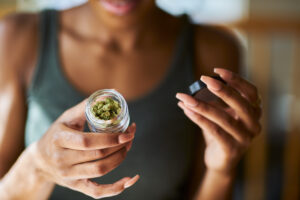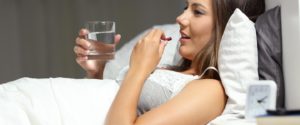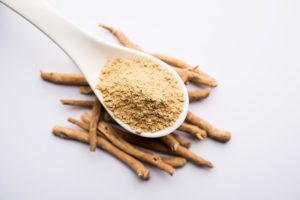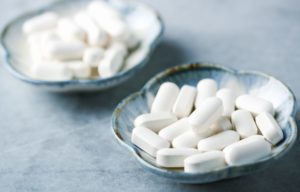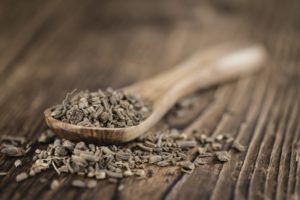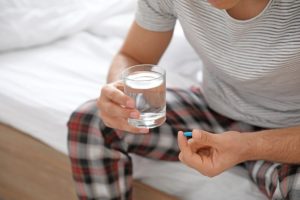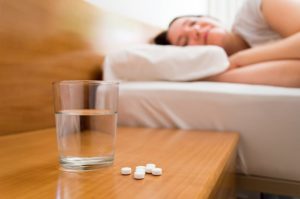The Best Essential Oils for Sleep
More than one-third of American adults don’t receive the recommended seven or more hours of sleep each night. With the essential oils market growing rapidly in the U.S. and worldwide, many people have learned about essential oils and are eager to find out if they are truly helpful when you can’t sleep.
Essential oils are oils derived from plants, usually by crushing and steam distilling parts of the plant. A variety of essential oils have been used as medical treatments since ancient times. Aromatherapy involves inhaling essential oil scents or vapor in hopes of obtaining positive health effects. Research demonstrates that because smell affects sleep, incorporating certain essential oils into your bedtime routine may help people sleep better.
Learn about the best essential oils for sleep to determine which ones you want to bring into your bedroom environment.
Lavender
Lavender, a purple flowering shrub, seems to be the plant with the essential oil that is most commonly studied by scientists. This essential oil calms the nervous system , primarily due to the chemical compounds linalool and linalyl acetate found within it. Many studies demonstrate lavender’s positive effect on sleep in a variety of people:
- People with insomnia — especially women, younger people, and those with mild insomnia — reported improved sleep after breathing in steam filled with lavender essential oil .
- In students, exposure to lavender aroma at nighttime reduced sleepiness upon waking the following day.
- Ischemic heart disease patients sleeping in a hospital’s intensive care unit experienced improved quality of sleep after hours of lavender aromatherapy .
- Women between ages 45 and 55 experienced improved sleep quality after lavender aromatherapy .
- Hospital patients with coronary artery disease experienced improved sleep and reduced anxiety after inhaling a lavender essential oil.
- Postpartum mothers who inhaled lavender essential oil and kept cotton balls soaked with lavender essential oil in the room as they slept enjoyed improved sleep.
Lavender can be put on a pillow to be inhaled during the night or combined with other oils and used for massage, as it is easily absorbed by the skin. Combining lavender aromatherapy with sleep hygiene techniques improves sleep more than lavender alone.
Bergamot
Bergamot is a fragrant herb native to North America, often grown to attract pollinators such as bees and butterflies. Research suggests bergamot may help with a variety of ailments. Sometimes, bergamot is ingested in extract form or as a juice. Bergamot essential oil may also be inhaled or diffused throughout a room.
When bergamot essential oil is experienced as aromatherapy, it may lower blood pressure and improve mental health . These calming properties might be why bergamot is thought to improve sleep. However, many sleep studies involving bergamot use essential oil mixtures rather than bergamot oil alone, making it difficult to determine the precise effects bergamot essential oil has on sleep.
One such study of healthy women found that a mixture of bergamot and sandalwood essential oils improved sleep quality in 64% of study participants . Another study of people in cardiac rehabilitation found that sleep quality significantly increased after exposure to an aromatherapy mixture of bergamot, lavender, and ylang-ylang .

Chamomile
There are two types of chamomile plants: Roman and German. These plant varieties are similar, although they have different combinations of active ingredients and, as a result, potentially different effects. Roman chamomile essential oil is more known for reducing anxiety, while German chamomile is known for relieving pain. If a person experiences anxiety or pain that interferes with sleep, reducing those symptoms could in turn improve sleep.
The effect drinking chamomile tea has on sleep is more commonly studied, but people do engage in chamomile aromatherapy for sleep as well. Roman chamomile, lavender, and neroli is an essential oil blend for sleep that has been scientifically studied. This blend reduced anxiety and improved sleep quality in a study of patients staying in an intensive care unit.
If you would like to reduce anxiety as part of your sleep hygiene routine, chamomile is considered to be one of the best essential oils for sleep and anxiety. In one study, inhaling a mixture of chamomile and lavender essential oils reduced anxiety in nurses. There was an even greater reduction when aromatherapy was paired with music. In another study, Roman chamomile aromatherapy reduced anxiety in pregnant women.
Cedarwood
If you enjoy woodsy scents, consider incorporating cedarwood essential oil as you create your ideal bedroom for sleep. Cedarwood oil has a sedative effect due to a chemical compound called cedrol .
The sedative effects of cedrol have been studied in both animals and humans . Inhaling an essential oil mixture that contains cedrol has been demonstrated to improve sleep quality in both young, healthy adults and older adults with dementia, likely because it activates the parasympathetic nervous system. Researchers recommend using cedarwood oil for at least 20 nights to see effects. Cedarwood oil, along with other essential oils, may increase total sleep time and reduce early morning awakenings.
Cedarwood oil appears to be versatile, improving sleep in a variety of different types of people. One study focused on women in their 20s, 30s, and 40s living in Japan, Norway, and Thailand . Cedrol had a sedative effect across groups, even though women in different countries had different baseline levels of anxiety and average sleep times.
Clary Sage Oil
Native to southern Europe, clary sage is an herb. Although it isn’t the same plant as the popular dried herb sage, it is often used similarly for flavoring foods. Some people may also use clary sage essential oil for its sleep-promoting properties. Studies show that clary sage oil has an antidepressant effect and reduces cortisol levels . Since cortisol impacts circadian rhythms and appears to be tied to alertness, reducing cortisol may promote sleep.
Clary sage may also improve sleep by reducing anxiety. In one study, clary sage oil inhalation appeared to reduce stress in medical patients by lowering their blood pressure and respiratory rate . If anxiety interferes with your ability to sleep and you enjoy the smell of herbs, clary sage oil might be a good option for you.
References
23 Sources
-
Ali, B., Al-Wabel, N. A., Shams, S., Ahamad, A., Khan, S. A., & Anwar, F. (2015). Essential oils used in aromatherapy: A systemic review. Asian Pacific Journal of Tropical Biomedicine, 5(8), 601–611.
https://www.sciencedirect.com/science/article/pii/S2221169115001033 -
Lewith, G. T., Godfrey, A. D., & Prescott, P. (2005). A single-blinded, randomized pilot study evaluating the aroma of Lavandula augustifolia as a treatment for mild insomnia. Journal of Alternative and Complementary Medicine, 11(4), 631–637.
https://pubmed.ncbi.nlm.nih.gov/16131287/ -
Hirokawa, K., Nishimoto, T., & Taniguchi, T. (2012). Effects of lavender aroma on sleep quality in healthy Japanese students. Perceptual and motor skills, 114(1), 111–122.
https://pubmed.ncbi.nlm.nih.gov/22582680/ -
Moeini, M., Khadibi, M., Bekhradi, R., Mahmoudian, S. A., & Nazari, F. (2010). Effect of aromatherapy on the quality of sleep in ischemic heart disease patients hospitalized in intensive care units of heart hospitals of the Isfahan University of Medical Sciences. Iranian Journal of Nursing and Midwifery Research, 15(4), 234–239.
https://pubmed.ncbi.nlm.nih.gov/22049287/ -
Chien, L. W., Cheng, S. L., & Liu, C. F. (2012). The effect of lavender aromatherapy on autonomic nervous system in midlife women with insomnia. Evidence-Based Complementary and Alternative Medicine, 2012, 1–8.
https://pubmed.ncbi.nlm.nih.gov/21869900/ -
Karadag, E., Samancioglu, S., Ozden, D., & Bakir, E. (2017). Effects of aromatherapy on sleep quality and anxiety of patients. Nursing in Critical Care, 22(2), 105–112.
https://pubmed.ncbi.nlm.nih.gov/26211735/ -
Afshar, M. K., Moghadam, Z. B., Taghizadeh, Z., Bekhradi, R., Montazeri, A., & Mokhtari, P. (2015). Lavender fragrance essential oil and the quality of sleep in postpartum women. Iranian Red Crescent Medical Journal, 17(4), e25880.
https://pubmed.ncbi.nlm.nih.gov/26023343/ -
Smith Lillehei, A., Halcon, L. L., Savik, K., & Reis, R. (2015). Effect of inhaled lavender and sleep hygiene on self-reported sleep issues: A randomized controlled trial. Journal of Alternative and Complementary Medicine, 21(7), 430–438.
https://pubmed.ncbi.nlm.nih.gov/26133206/ -
The Editors of Encyclopaedia Britannica. (n.d.). Bergamot. Britannica., Retrieved May 4, 2021, from
https://www.britannica.com/plant/bergamot -
Perna, S., Spadaccini, D., Botteri, L., Girometta, C., Riva, A., Allegrini, P., Petrangolini, G., Infantino, V., & Rondanelli, M. (2019). Efficacy of bergamot: From anti-inflammatory and anti-oxidative mechanisms to clinical applications as preventive agent for cardiovascular morbidity, skin diseases, and mood alterations. Food Science & Nutrition, 7(2), 369–384.
https://pubmed.ncbi.nlm.nih.gov/30847114/ -
Dyer, J., Cleary, L., McNeill, S., Ragsdale-Lowe, M., & Osland, C. (2016). The use of aromasticks to help with sleep problems: A patient experience survey. Complementary Therapies in Clinical Practice, 22, 51–58.
https://pubmed.ncbi.nlm.nih.gov/26850806/ -
McDonnell, B., & Newcomb, P. (2019). Trial of Essential Oils to Improve Sleep for Patients in Cardiac Rehabilitation. Journal of Alternative and Complementary Medicine, 25(12), 1193–1199.
https://pubmed.ncbi.nlm.nih.gov/31556690/ -
Srivastava, J. K., Shankar, E., & Gupta, S. (2010). Chamomile: A herbal medicine of the past with bright future. Molecular medicine reports, 3(6), 895–901.
https://pubmed.ncbi.nlm.nih.gov/21132119/ -
Cho, M. Y., Min, E. S., Hur, M. H., & Lee, M. S. (2013). Effects of aromatherapy on the anxiety, vital signs, and sleep quality of percutaneous coronary intervention patients in intensive care units. Evidence-Based Complementary and Alternative Medicine, 2013, 381381.
https://pubmed.ncbi.nlm.nih.gov/23476690/ -
Zamanifar, S., Bagheri-Saveh, M. I., Nezakati, A., Mohammadi, R., & Seidi, J. (2020). The effect of music therapy and aromatherapy with chamomile-lavender essential oil on the anxiety of clinical nurses: A randomized and double-blind clinical trial. Journal of Medicine and Life, 13(1), 87–93.
https://pubmed.ncbi.nlm.nih.gov/32341707/ -
Ghiasi, A., Bagheri, L., & Haseli, A. (2019). A systematic review on the anxiolytic effect of aromatherapy during the first stage of labor. Journal of Caring Sciences, 8(1), 51–60.
https://pubmed.ncbi.nlm.nih.gov/30915314/ -
Kagawa, D., Jokura, H., Ochiai, R., Tokimitsu, I., & Tsubone, H. (2003). The sedative effects and mechanism of action of cedrol inhalation with behavioral pharmacological evaluation. Planta Medica, 69(7), 637–641.
https://pubmed.ncbi.nlm.nih.gov/12898420/ -
Takeda, A., Watanuki, E., & Koyama, S. (2017). Effects of inhalation aromatherapy on symptoms of sleep disturbance in the elderly with dementia. Evidence-Based Complementary and Alternative Medicine, 2017, 1902807.
https://pubmed.ncbi.nlm.nih.gov/28400839/ -
Yada, Y., Sadachi, H., Nagashima, Y., & Suzuki, T. (2007). Overseas survey of the effect of cedrol on the autonomic nervous system in three countries. Journal of Physiological Anthropology, 26(3), 349–354.
https://pubmed.ncbi.nlm.nih.gov/17641454/ -
The Editors of Encyclopaedia Britannica. (n.d.). Salvia. Britannica., Retrieved May 5, 2021, from
https://www.britannica.com/plant/Salvia#ref226124 -
Lee, K. B., Cho, E., & Kang, Y. S. (2014). Changes in 5-hydroxytryptamine and cortisol plasma levels in menopausal women after inhalation of clary sage oil. Phytotherapy Research, 28(11), 1599–1605.
https://pubmed.ncbi.nlm.nih.gov/24802524/ -
Chan, S. & Debono, M. (2010). Replication of cortisol circadian rhythm: New advances in hydrocortisone replacement therapy. Therapeutic Advances in Endocrinology and Metabolism, 1(3), 129–138.
https://pubmed.ncbi.nlm.nih.gov/23148157/ -
Seol, G. H., Lee, Y. H., Kang, P., You, J. H., Park. M., & Min, S. S. (2013). Randomized controlled trial for Salvia sclarea or Lavandula angustifolia: Differential effects on blood pressure in female patients with urinary incontinence undergoing urodynamic examination. Journal of Alternative and Complementary Medicine, 19(7), 664–670.
https://pubmed.ncbi.nlm.nih.gov/23360656/

